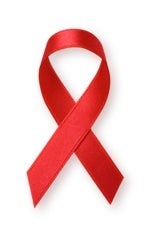November 30, 2012 — Since the early 1980s, HSPH researchers have made fundamental discoveries about HIV/AIDS and worked on the frontlines of the disease. In 1983, Max Essex provided key evidence that the infection is caused by a retrovirus; two years later, he co-discovered the gp-120 surface protein, which is now used worldwide for blood screening. In 1986, Essex, Phyllis Kanki, and Richard G. Marlink discovered a second  AIDS virus, HIV-2, which causes most infections in West Africa. In 1988, HSPH helped launch what has become the Harvard School of Public Health AIDS Initiative. Through the Botswana Harvard AIDS Institute Partnership, the AIDS Prevention Initiative in Nigeria (APIN), the School’s vital work in the President’s Emergency Plan for AIDS Relief (PEPFAR), and through other international collaborations, HSPH has trained thousands of health care workers in some of the most tragically affected parts of the world. And the School continues to lead the way in testing, treatment, and vaccine research.
AIDS virus, HIV-2, which causes most infections in West Africa. In 1988, HSPH helped launch what has become the Harvard School of Public Health AIDS Initiative. Through the Botswana Harvard AIDS Institute Partnership, the AIDS Prevention Initiative in Nigeria (APIN), the School’s vital work in the President’s Emergency Plan for AIDS Relief (PEPFAR), and through other international collaborations, HSPH has trained thousands of health care workers in some of the most tragically affected parts of the world. And the School continues to lead the way in testing, treatment, and vaccine research.
Learn more
Upcoming event: PEPFAR in Africa: HSPH’s Role in the Largest Public Health Endeavor in History
Symposium, January 10, 2013
Harvard School of Public Health AIDS Initiative
HAI is dedicated to research and education to end the AIDS epidemic in Africa and developing countries. For two decades, HAI has been at the forefront of HIV/AIDS laboratory research, clinical trials, education, and leadership.
 To commemorate the 30th anniversary of AIDS, HSPH convened a major international symposium. The vanguard of the global AIDS response gathered December 1-2, 2011, to reflect on what we have learned from AIDS and how to apply those lessons towards ending the epidemic. Watch videos of sessions from AIDS@30 and learn more about conference outcomes.
To commemorate the 30th anniversary of AIDS, HSPH convened a major international symposium. The vanguard of the global AIDS response gathered December 1-2, 2011, to reflect on what we have learned from AIDS and how to apply those lessons towards ending the epidemic. Watch videos of sessions from AIDS@30 and learn more about conference outcomes.
AIDS at 30: Hard Lessons and Hope
Thirty years after the first official reports about HIV/AIDS, we look back on the human devastation and forward to a changed social landscape. The infection has killed more people so far than has any other discrete epidemic, except for the Great Influenza pandemic of 1918–1919 and the Black Death of the Middle Ages. It has destroyed individuals, families, and societies. Yet HIV/AIDS has also raised public health to new levels of science, conscience, and innovation. Distinguished Harvard School of Public Health faculty and alumni comment on where the epidemic has taken us and where it is headed. (Harvard Public Health Spring/Summer 2011)
Dean’s Message: HIV/AIDS at 30: Turning the Corner
Recent research
- No Benefit From High-Dose Multivitamins Seen for HIV Patients Receiving Antiretroviral Therapy
- Seven Steps To AIDS-Free Generation; Challenge of Aging HIV Population
- Antiretroviral Treatment Helps Keep HIV Patients in South Africa Employed
- End to 30-year War Against AIDS in Sight
Read more stories about HIV/AIDS research at Harvard School of Public Health.
